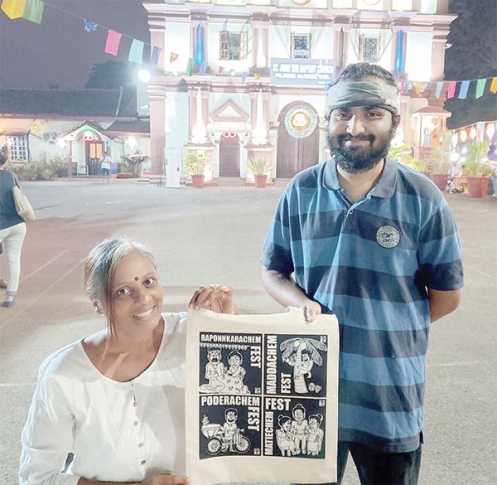
Ajit John
Goa’s villages are witnessing a rebirth of traditional
markets. Markets in the villages of Pilerne, Saligao and Porvorim and several
pop-up markets with no particular day or timing. They are happening thanks to
the efforts of people interested in ensuring these institutions don’t die out.
Marius Fernandes has been involved in organising markets and
festivals around the state. Speaking about the rebirth of these traditional
markets, Marius said, “Before the lockdown life was moving along as everyone
knew it but the lockdown changed everything. The rich got richer and the poor
really struggled. In Goan villages, people have skills like very few people in
the world do. They did not have to think much. They went back to farming,
growing vegetables, fruits, and nuts. They started making pickles and several
people started preparing Goan dishes like Sarpotel and Sannas.” People he said
had been apart for two years and were looking forward to interacting with
people around them. He said after the lockdown he organised 55 festivals and
created 10 festivals around food and brought back recipes on to the Goan table.
Fernandes said people were asking why it was not possible to have a revival of
the traditional village market. The task he said was made easier by the fact
they had a database of the people who had these specific skills. They knew who
could cook what dish.
The market at Pilerne on Thursday, the Heritage market
Saligoa on Tuesdays and the Farmers market in Porvorim at Dasya on Sunday maybe
for a day but all the people involved in the market had also now present on
social media. Many entertain business from interested customers in the state,
the country and even international orders. The traditional market in its
physical form may be for a day but for the people involved in the business it
is a seven day business like any other. Many of these foods are not available in
supermarkets. They are homemade, locally grown and organic. These markets
empower local people and it is done without political support. It is a people’s
movement. The people’s market in Pilerne is a zero waste market. It is also
trying to empower the differently abled community. Plastic is not allowed.
Vendors are not allowed to use plastic. Biryani will be served in a mud pot.
This then means the potter earns money. People visiting the market are
encouraged to bring their own plates and cups. All these steps ensure a zero
waste market.
Marius has shifted to Salcette because there are hardly any
festivals held in that place. People from Bogmalo, Benaulim and Navelim have
approached him to organise markets in their areas. The festivals are not
inaugurated by the chief guest, no sponsors are allowed, no alcohol, no prizes
because there are no competitions organised. The whole market, he said, was
full of surprises. The local people were encouraged to come and perform,
conduct workshops, demonstrate skills and provide information to youngsters
about food. All this is learned without any fee.
Marius hoped the government would encourage these efforts
because the people in the villages had the skills as well as the resources to
do it. In a couple of months, the cashew season is followed by the mango and
then the jackfruit season. He was working to create festivals around these
fruits. Tourists, he said, would come and taste these fruits. In three months
the mango season would soon commence and a festival would be held around it.
The Goan soil, Fernandes said, was rich and anything would
grow. He hoped the markets and festivals would become a constant on the
landscape of the state.
